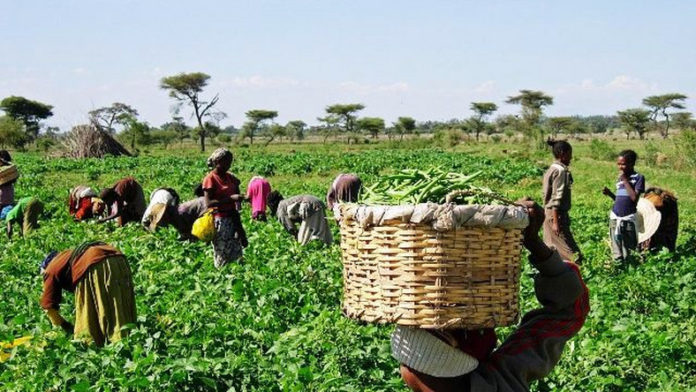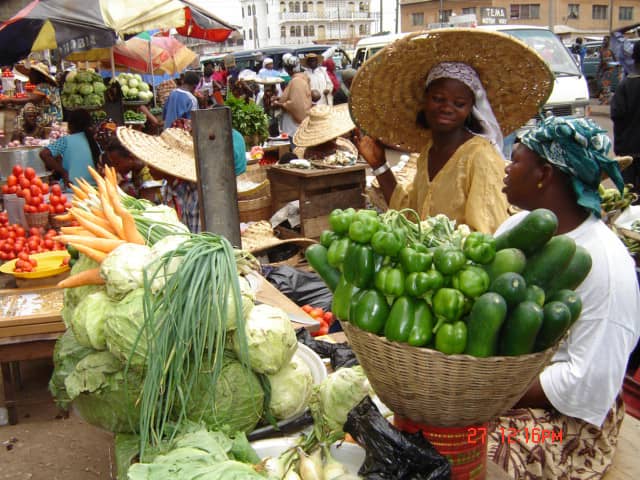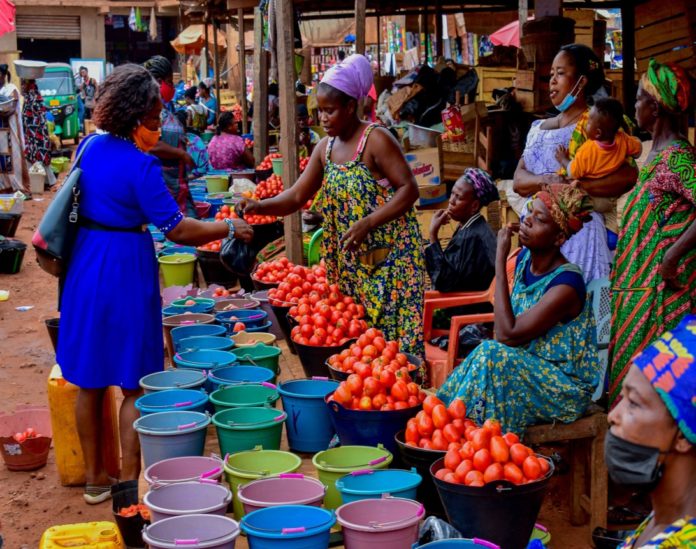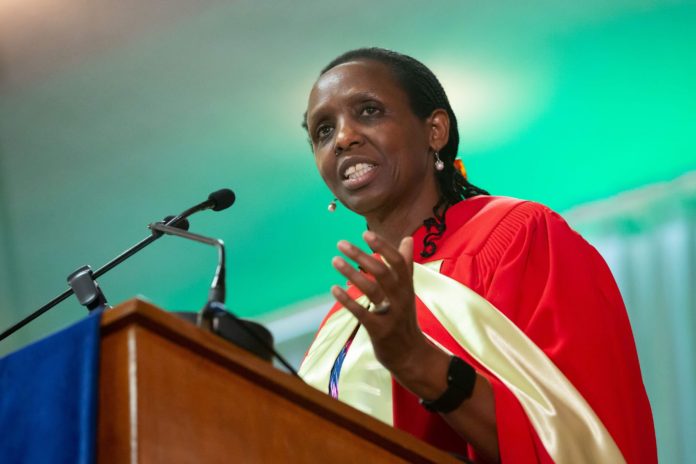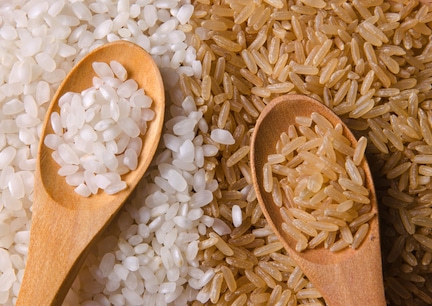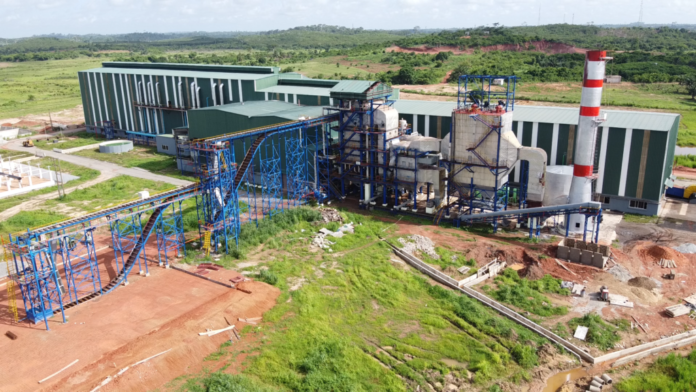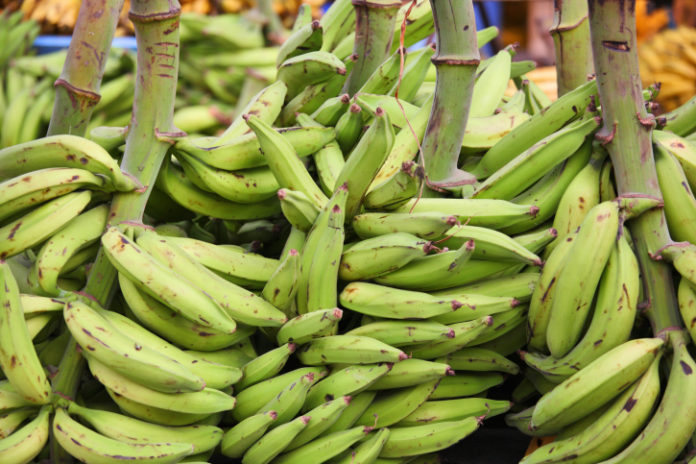He added that the AfDB board had approved a $1.5 billion emergency fund to support 20 million farmers in Africa due to the food crisis caused by the Russian-Ukraine war.
Africa needs $3 trillion to reduce climate change vulnerabilities Ofori-Atta.
Mr. Ken Ofori-Atta, Chairperson of the Board of Governors of the African Development Bank (AfDB), says Africa needs about $3 trillion to enable it to reduce climate change vulnerabilities.
There is no dignity in begging for food—Dr. Adesina.
Dr. Akinwumi Akin Adesina, the President of the African Development Bank (AfDB) Group, says there is no need for Africa to beg other countries for food.
Ghana records about $1.33bn trade surplus in April 2022.
Ghana recorded a trade surplus of $1.33 billion in the first four months of 2022, higher than the $1.107 billion recorded in the entire 2021.
This is approximately 1.9% of Gross Domestic Product (GDP).
According to the Bank of Ghana Summary of Economic and Financial Data, total exports in the 4-months of 2021 were $6.10 billion. This is against total imports of $4.77 billion.
The increase in the trade balance is due to the increase in the price of crude oil on the world market and improve gold production in the country.
The data further revealed that gold dominated the total value of exports, recording $1.87 billion in April 2022, followed by oil which registered $1.85 billion in April 2022.
Cocoa exports, however, declined to $1.11 billion in April 2022, from $1.29 billion in April 2021.
In 2021, gold exports for the first four months were estimated at $1.80 billion.
Oil exports for the first four months of 2021 were however estimated at $1.14 billion.
The impressive outing for crude oil exports so far in 2022 is a result of the higher price of the commodity.
For imports, non-oil imports was estimated at $3.49 billion in April 2022, whilst oil imports accounted for $1.27 billion.
Also, the current account balance as of April 2022 stood at a deficit of $128.2 million, about -0.2% of GDP.
This is lower than the deficit of $197 billion, approximately -0.2% of GDP recorded during the same period of last year.
The overall balance of payment however stood at -$934.5 million in April 2022, as against -$429.9 million in April 2021.
Africa needs more resources to fight climate change – AfDB President.
The President of the African Development Bank, Dr. Akinwumi Adesina, says the African continent is not getting enough resources to tackle climate change as it gets only 3 percent of total global climate finance.
This situation, he said, would lead to a shortfall of about $100 billion to $127 billion per year between 2020 and 2030.
Dr. Adesina, therefore, called on Developed Countries to fulfill the $100 billion per year climate finance pledge made in 2009 at the United Nations Climate Change Conference in Denmark.
He made the remarks during the Annual General Meeting (AGM) Opening press briefing on Monday on the theme: ‘Achieving Climate Resilience and a Just Energy Transition’.
Dr. Adesina said while Africa accounted for less than 5 percent of global greenhouse gas, it suffered losses between $7 billion to $15 billion as a result of climate change.
“This is expected to rise to $50 billion a year by 2040.
He added that “our estimates show that to achieve the goals of the 2015 Paris Agreement, with all the Nationally Determined Contributions of Africa, will
Require $3.5 trillion in energy investments every year between 2016 and 2050.”
Going forward, Dr. Adesina said the bank would channel the bulk of its climate financing to climate adaptation, adding that, “the Bank currently devotes 67 percent of its climate finance to adaptation’.
“Together with the Global Centre on Adaptation, we are mobilising $25 billion for climate adaptation in Africa,” he said.
Despite the interventions of the bank, however, he said more resources were needed for the continent to fight climate change.
The AGM will focus on how to raise more resources for the African Development Fund, to better support low-income and fragile states in Africa.
It is to be attended by over 1000 delegates made up of Ministers of Finance, Governors of Central Banks, Leaders of local and international Finance and Development Organisations, captains of industry, and civil society organisations.
These are from the 81 Member States of the AfDB which consists of 54 Regional and 27 nonregional member countries.
Commodity Prices: Passing of Grain Development Authority Bill will stabilize food price fluctuations – Agric Ministry.
The Ministry of Food and Agriculture says the passing of the Grains Development Authority bill will address the current challenges of food fluctuations in the country.
AGRA President Dr. Agnes Kalibata has been appointed to the high-profile Climate Overshoot Commission.
The President of Alliance for a Green Revolution in Africa (AGRA), Dr. Agnes Kalibata, has been selected as one of 16 eminent members of the Climate Overshoot Commission.
Komenda Sugar Factory to import raw sugar for processing – Board
The Board of the Komenda Sugar Factory has announced that it will import raw sugar to support what will be produced locally in order to operationalize the Komenda Sugar Factory.
Ghana to import plantain from Rwanda.
Ghana virtually imports everything including water, salt, toothpick, cassava, and many others. The shocking news this morning is Ghana is preparing to import plantain from Rwanda.

